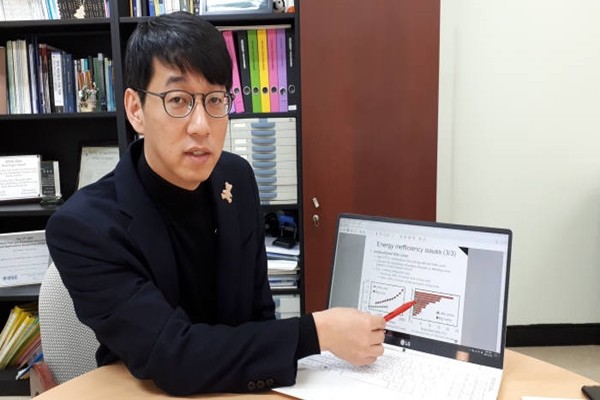A technology that can reduce a Smartphone’s web browser’s power consumption up to 40% has been developed. It is expected that hours of battery use can be drastically improved by reducing consumption of a web browser that takes up significant amount of power consumption of a Smartphone.
Korea Advanced Institute of Science and Technology (KAIST, Chancellor Shin Sung-chul) made an announcement that a research team led by Professor Shin In-sik of Computer Science Department has developed ‘low-power mobile browsing technology by optimizing number of frames generated by a webpage.
A web browser is an application that is used the most from a Smartphone. YouTube and Facebook are also applications that are based on a web browser. Amount of power consumption from these applications take up 40 to 60% of entire amount of power consumption of a Smartphone.
Research team reduced amount of power consumption by reducing number of generated frames of a fixed web browser depending on situations.

Usually a web browser generates 30 frames per second (fps) and it does not consider a download of a webpage. Even if there is no chance in information due to downloads being delayed, it generates excess frames and wastes power. Low-power mobile browsing technology prevents power being wasted by either increasing or decreasing number of generated frames depending on network speed and others.
This technology also optimizes operating process. Current Smartphones’ operating process is based on ‘capacity of calculation’ and it takes care of a task that requires a lot of calculations first. However low-power mobile browsing technology takes care of tasks that require calculations immediately first. By doing so, it can reduce amount of power consumption of a web browser on an average of 26% and up to 60%.
“Software alone can increase performance of a Smartphone’s power when low-power mobile browsing technology is applied.” said Professor Shin. “This technology will be helpful for Smartphone manufacturers and web browser developers that are trying to optimize power consumption.”
Staff Reporter Kim, Youngjoon | kyj85@etnews.com